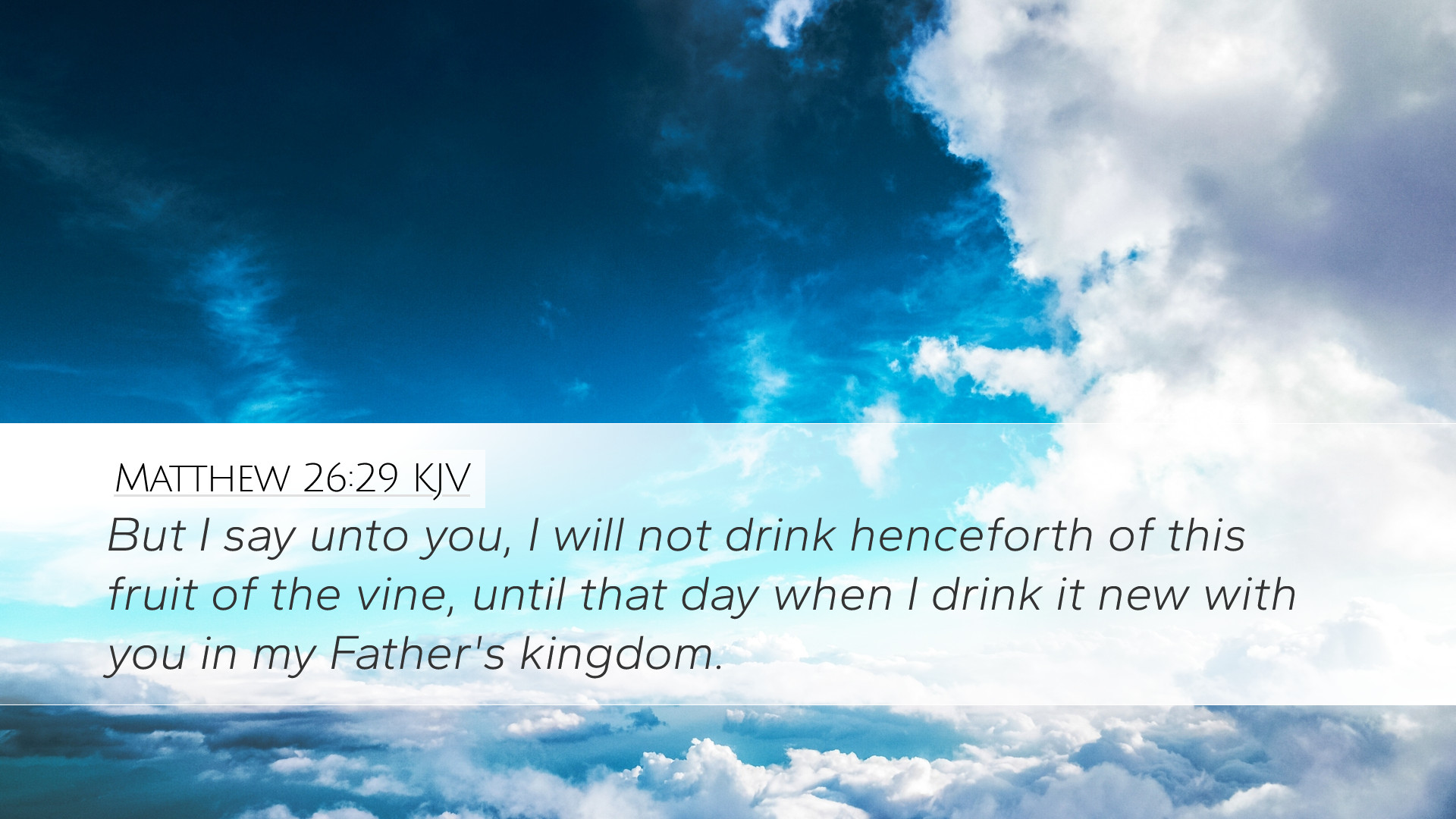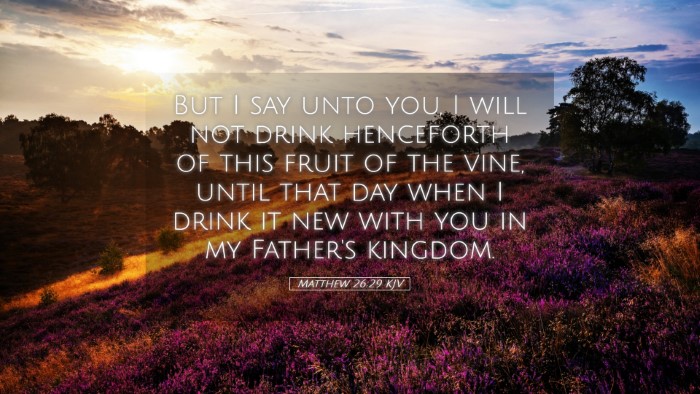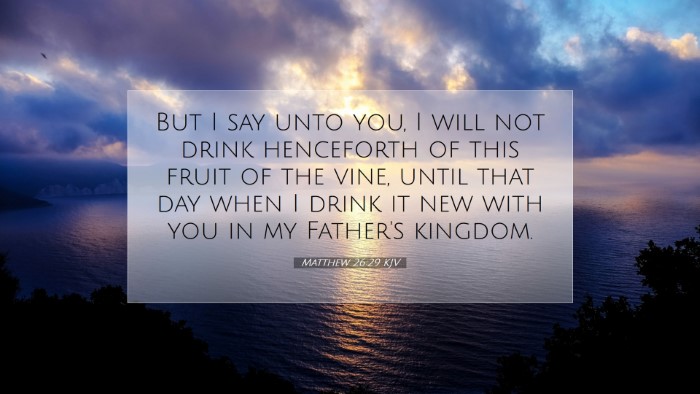Commentary on Matthew 26:29
Matthew 26:29 states: "But I say unto you, I will not drink henceforth of this fruit of the vine, until that day when I drink it new with you in my Father’s kingdom." This verse is situated within a profound moment during the Last Supper, where Jesus institutes the Lord's Supper and signifies a significant theological promise regarding the Kingdom of Heaven.
Contextual Overview
In the context of Matthew, chapter 26 serves as a climax of the gospel narrative, marking the Passion of Christ. The passage is part of the Last Supper where Jesus shares His final meal with His disciples prior to His crucifixion. Understanding this verse requires an exploration of its immediate context and the broader implications within the New Testament narrative.
Theological Insights
This declaration by Jesus draws attention to several key theological themes:
- The Significance of the Covenant: Jesus speaks of a new covenant, marking a profound shift from the Old Covenant practices. The fruit of the vine symbolizes not only His blood that will be shed for humanity but also the inauguration of a covenantal relationship between God and His people.
- Anticipation of Future Fulfillment: Jesus' promise to abstain from drinking until He does so anew in the Father's kingdom suggests a future reunion and celebration with His followers that is yet to come. This points to eschatological themes of completion and restoration.
- Community and Fellowship: The mention of "with you" emphasizes the communal aspect of faith. It signifies the close-knit relationship between Christ and believers, portraying a family-like bond that transcends earthly ties.
Commentary Insights from Early Scholars
Matthew Henry
Matthew Henry, in his commentary, highlights the significance of Jesus' abstention from the fruit of the vine. He interprets this act not merely as a momentary sacrifice but as a deliberate choice that foreshadows the greater joy awaiting believers in the heavenly kingdom. He emphasizes that Christ does not merely deny Himself pleasure, but looks forward to a time of reunion, inferring that the Kingdom of Heaven is one of joy, celebration, and divine fellowship.
Albert Barnes
Albert Barnes provides critical insight into the implications of this verse regarding the anticipation of the Messianic banquet. He suggests that Jesus was affirming His role as the Messiah who would fulfill the prophecies concerning the Kingdom of God. Barnes underscores the importance of understanding Christ’s statement as a promise of future participation in the joys of heaven, assuring believers that their faith will ultimately lead to eternal celebration in the presence of God.
Adam Clarke
Adam Clarke expands on the eschatological implications inherent in this promise. He emphasizes the hope that the Lord’s Supper instills in believers, pointing out that it serves as a precursor to the future feast in the Kingdom of God. Clarke's interpretation encourages readers to grasp the continual significance of Jesus’ teachings and the anticipation of joy that comes from faith, which will be consummated in eternity.
Application for Today’s Believers
This verse challenges modern believers to reflect on both the somber and celebratory aspects of their faith. Reflecting on this, pastors, theologians, and students of Scripture can draw several applications:
- Embrace the New Covenant: Understanding the significance of Jesus' sacrifice inspires believers to live in a way that honors this new covenant, embracing grace and reconciliation.
- Look Forward with Hope: The anticipation of drinking anew with Christ can bolster faith amidst trials. Believers are called to live in the light of eternity, knowing that present sufferings are temporary compared to future joys.
- Foster Community: The communal invitation from Christ invites believers to deepen their connections with one another, underscoring the importance of fellowship in the Christian journey.
Conclusion
Matthew 26:29 encapsulates profound truths about Jesus' mission, the establishment of the new covenant, and the eternal hope offered to believers. As we reflect on this verse, guided by the insights of historical commentary, we are reminded of the richness of our faith and the joyous future awaiting us in the Father’s kingdom.


